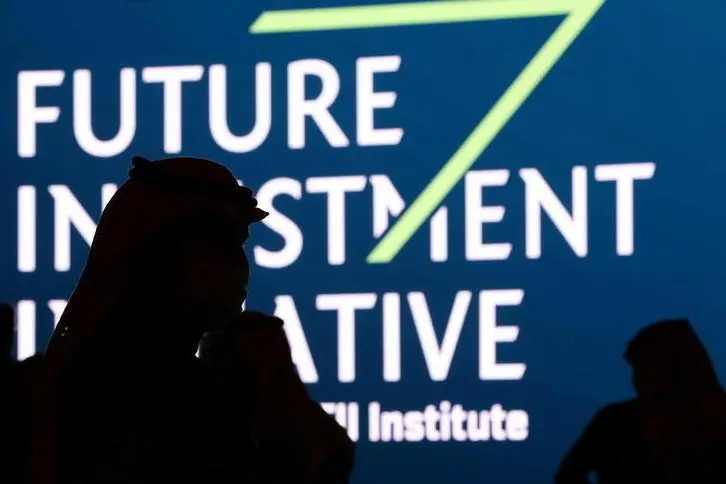PHOTO
The first environmental, social and governance (ESG) conference of the Future Investment Initiative (FII) Institute was a real masterclass in taking into consideration all aspects of ESG standards.
The title of the conference “The Neo-Renaissance: Mobilizing ESG for a Sustainable Future” could not have been chosen more pertinently. The world is emerging from the COVID-19 pandemic, which makes it important to think strategically about the one planet on which we inhabit and how to organize life on it. ESG is an important building block along that thought process. Similarly, the renaissance also marked the passing of a pandemic, the plague, and the transition to a new more enlightened world order.
The conference canvassed a multitude of companies and institutions from various sectors and all geographies, which was truly impressive because ESG principles are globally pertaining to all sectors and geographies. The 17 sustainable development goals, which essentially build a common set of values on which ESG principles are built, are also truly global and universal. The approach of the conference reflected that scope.
FII Chairman Yasir al Rumayyan put forward the considerable contribution Saudi Arabia is making in terms of the country’s Public Investment Fund (PIF) and its involvement in developing 70 percent of Saudi Arabia’s renewable energy development. Backing a consortium purchasing power from the Sudair solar PV project as well as sponsoring NEOM, the city of the future, which has announced the world’s largest green hydrogen project, are strong examples. The Kingdom also recently launched the Saudi and the Middle East Green initiatives. The conference did a great job highlighting the importance of standards and an intelligent debate around the standardization of ESG ratings as well as the difficulties arising from standardizations.
Difficulties emerge when applying standards to markets at various stages of development. Ayaan Zeinab Adam, the CEO of AFC Capital Partners, powerfully illustrated this topic by highlighting the plight of Africa as one of the major developing regions. She urged that ESG standards needed to take into account that 40 percent of the continent is still without access to power. Meanwhile, Africa is emitting less than 4 percent of global carbon dioxide (CO2) emissions but provides a store for absorbing CO2 with forests and landmass. The continent also has many raw materials needed for greener sources and uses of energy.
The conference did an excellent job by involving players from all relevant sectors and underscoring the role finance was playing in achieving ESG standards. The importance of a broad-based approach stood out.
The environmental side of ESG was a case in point: While it has become easier and a lot more cost effective to use renewable sources of energy, rendering it mainstream, Jeff Ubben, the founder and CEO of Inclusive Capital Partners, pointed out that the world needs to look beyond renewables to achieve its ambitious climate goals. He insisted countries use world-class research from established corporations such as Exxon in terms of reducing carbon emissions by use of carbon capture, utilization and storage along with other methodologies. This reasoning goes hand in hand with the circular carbon economy which is designed to reduce, reuse, recycle and remove CO2 and which has been adopted by G20 countries after having been presented by Saudi Minister of Energy Prince Abdul Aziz bin Salman.
The conference was also unusual in as much as it did not just focus on how major financial institutions could contribute to the ESG agenda, but highlighted retail investors, who were increasingly interested in this field. The motto here is that, with regard to ESG investment, they should ask: “Tell me, show me, involve me.”
Indeed, ESG type investing has been the fastest-growing asset class over the past few years. By 2025, more than 50 percent of all professionally managed money will be invested along ESG principles in the US according to Deloitte, which highlights this trend very well.
The correlation between longer-term performance and ESG has become evident according to Murray Roos of the London Stock Exchange. Where there are discrepancies, investors applied the short term rather than the long-term view. This would go hand in hand with statistics showing that fund managers who had invested according to ESG principles had over time achieved better returns than those who had not.
During the whole two hours, the debate kept reverting to the overall importance of metrics for ESG standards and not just pertaining to how vital they were to detect and avoid greenwashing.
The conference could not have ended on a better note than the signing of a memorandum of understanding between the FII Institute CEO Richard Attias and Jean-Jacques Barberis of France’s Almundi. The two institutions will collaborate to ensure ESG metrics reflect among other things the differences between various geographies while achieving 100 percent ESG compliance. This is true thought leadership in the very important and ever-growing field of ESG.
• Cornelia Meyer is a Ph.D.-level economist with 30 years of experience in investment banking and industry. She is chairperson and CEO of business consultancy Meyer Resources. Twitter: @MeyerResources
Copyright: Arab News © 2021 All rights reserved. Provided by SyndiGate Media Inc. (Syndigate.info).





















